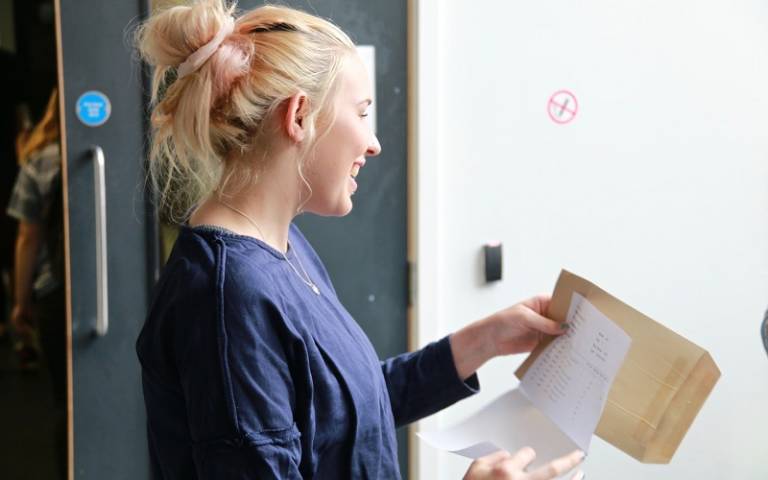New study to investigate how the COVID-19 pandemic impacts students’ university choices
22 February 2021
UCL’s Centre for Education Policy and Equalising Opportunities (CEPEO) has been awarded funding by UKRI to study the impact of COVID-19 disruptions on student university course choice.

CEPEO will lead on the project, with Dr Gill Wyness, Professor Lindsey Macmillan (both CEPEO), Stuart Campbell (UCL Institute of Education), Dr Jo Blanden (University of Surrey and the Centre for Economic Performance at the London School of Economics) and Dr Monica Langella (CEP at LSE) forming the research team.
The key aspect of choice that the research will be focusing on is mismatch – students enrolling in courses that are more or less selective than would be expected given their achievement level.
Teacher-predicted grades replaced A level exams in 2020 for most students. Previous research by a UCL team finds more disadvantaged students receive less generous grade predictions and are more likely to ‘undermatch’ (attending less selective courses than expected given their A level grades).
In contrast, more advantaged and private school students receive more generous predictions. They also have better information, advice and guidance, a key driver of attending courses with higher entry requirements.
This matters for social mobility since evidence shows that attending more academically selective courses can lead to higher future earnings.
Dr Gill Wyness, project lead and Deputy Director of CEPEO, said:
“A unique set of conditions occurred in university admissions in 2020. Universities made increased offers to domestic students, over fears of fewer overseas students attending. But these offers were made on the understanding that students would sit exams. Instead, because of the pandemic, they were assigned grades by their teachers, which have been shown to be more generous towards high-achieving, high socioeconomic status students. Numbers caps were abandoned by the government, and universities were legally obliged to accept students they made offers to – giving those with higher predictions, who had aimed higher, a better chance of securing a place. This could be a ‘perfect storm’ putting high socioeconomic status students at an advantage.
“Our new study will shed light on the impact of predicted grades on mismatch and tell us more about what kinds of students are affected. We will investigate how mismatch impacts degree outcomes, equality and social mobility.”
The project was funded by UK Research and Innovation (UKRI) as part of the COVID-19 rapid response call.
Links
- View Dr Gill Wyness’ research profile
- Centre for Education Policy and Equalising Opportunities
- Department of Learning and Leadership
- COVID-19 research at UCL Institute of Education
 Close
Close

